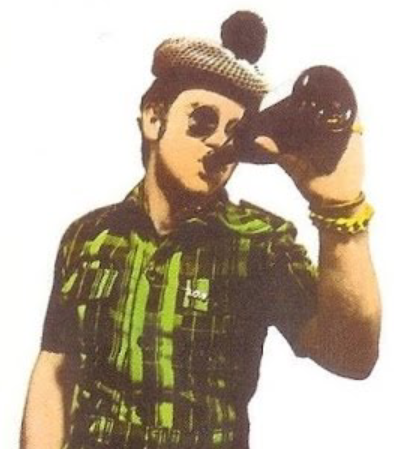I’ve been curious how many working researchers we’ve got in this community, and what you all do!
If you’re working in science (physical or social), engineering, etc in a research capacity, give a shout in the comments and let us know what you work on! Same goes for students and amateur scientists at any level. (And by amateur I mean those of you who are working on your own experiments but just not being paid for it / not working on a degree; I’m upset that “amateur” has a negative connotation, it shouldn’t.)
I’m currently a PhD candidate, working on transmission electron microscopy and electronic materials (mainly ferroelectrics). In the past I’ve been involved in research / product development in a few different industries, including medical devices, aerogels, and materials for RF devices.
I work in mine closure. I create plans to re-integrate them back into the surrounding landscape, and provide valuable end land uses (not just those centred around ecosystem re-establishment).
That’s so cool! Sounds like an incredibly rewarding job. (Also I love visiting old mines that are no longer working but are open to the public for viewing. Always a cool experience.)
I’m working on my Astrophysics PhD. I study “galactic cannibalism” aka how galaxies grow and change by eating smaller galaxies. My big focus is on teaching and outreach though rather than research.
Cool! Is this the kind of thing that’s going to happen between Andromeda and the Milky-way, or is that fundamentally different because they’re more similar in size?
Yep, MW and Andromeda merger will be a “major merger” that will have huge effects on both galaxies. The ones I work with are small (“dwarf”) galaxies that have a much smaller effect on the big one that eats them.
PhD candidate, archaeologist in a physical geography department. I read dirt to reconstruct ecosystems over time.
working in a cultivated meat startup, msc in biotechnology, but now disillusioned and wanting to do something academic/more down to earth and helpful
If it’s not too personal, may I ask what lead to your disillusionment with the field? “Lab grown” meat (assuming that’s what you mean by cultivated) has seemed like a promising idea to me for a while, in terms of environmental impact and the ethical consideration of animals.
That doesn’t feel helpful to you?
no, the technology is underdeveloped, and very resource intensive. I don’t think it is a viable alternative at all. Better to just eat what grows from the ground than spend so much time, money, energy forcing cells that don’t want to grow in such an artificial environment. I’ve also started to notice how it seems to be quite tied to EA and longtermism crowd, who are investing in it a lot.
True. It could still have benefits from a vegetarian or conservation perspective, though.
Have you thought about trying to get into genetically modified plant crops, then?
I work at a company that makes large and small rocket engines (e.g., the ones on SLS/Artemis, and solids for a number of defense programs), and various electrical power systems (e.g., for the ISS and some of the Mars rovers). I manage the space software engineering organization.
Oh wow, that’s fascinating! I imagine you have to be very careful with software reliability for that kind of project?
It looks like you’ve already found the space community as well! (But for anyone else who might not have: https://beehaw.org/c/space)
PhD student working in reinforcement learning (the branch of machine learning, not the neuroscience kind). Trying to figure out how to make more general agents, and I’m hypothesizing that making things bigger is a key ingredient.
Bigger seems to have helped so far, yeah, with things like GPT3.5 being based m some really massive models iirc? Happy to have you around!
I’m a Data Scientist (physics PhD) for a large enterprise company. I’ve been in this field for the last decade and I’m kinda bored with it. I’m not exactly sure what to do next though…
Mmm yeah, I can imagine things might get a bit stale after a decade working on similar things. What was your physics PhD in, something you’d be interested in pursuing again maybe?
My thesis covered optoelectronic measurements of nanomaterials for novel photovoltaics. Even as a kid, I wanted some sort of career researching alternative energy, but those jobs sadly don’t exist.
Researching alternative sources of energy would certainly be a rewarding career. I’m a bit surprised to hear nobody’s doing it, I’d think there’d be companies trying to commercialize on the pretty massive progress we’ve seen in PV efficiency at the lab scale. I remember in my undergrad people were really excited about roll-to-roll manufacturing for flexible organic perovskite solar cells, but come to think of it I haven’t heard much about them in the last five years. I wonder what happened. Maybe just still to expensive to compete commercially with silicon PV?
Regardless, I hope you find a direction that’s fulfilling for you!
Yeah, it’s pretty hard to beat silicon. But, thanks so much for the well wishes! (I’m currently trying my hand as an Indie Game Dev, so we’ll see how that goes ha)
I’m a PhD candidate too - my contract is finished now, but I am still writing my thesis. So I am currently at the awkward intersection of finishing a thesis and looking for a job.
My PhD focus is in applying time-resolved spectroscopic techniques to study the excited state dynamics of molecules. Basically, these are experiments in which a pulsed laser is used to excite the sample and a second probe light is used to measure a change in the absorption in response to the light. By measuring these changes in the absorption as a function of time, and applying quantum chemical methods to calculate the spectra of potential intermediates, one can sort of recreate a movie of what the molecule is doing after it absorbs light with a time resolution of femto to picoseconds. The materials that I study are organic dyes that are useful for microscopy, as well as molecules that respond to EUV light for applications in photonanolithography (for making the very small transistors in computer chips).
I am also an “amateur” scientist when it comes to biology, as many of my hobbies are nature-based and it’s not like I can turn off the science bug when it comes to hobbies.
Well that’s fascinating! The technique sounds a little bit like a cross between Raman and EXAFS/XANES? (Probably just because those are two techniques I happen to be familiar with though.)
PhD in Geology. Now am a research scientist working in more general materials science/chemistry/gas adsorption. My thesis was on lunar petrology where I studied Apollo 16 samples. My current research is much less exciting. Haven’t touched a rock in ages and my geologist heart hurts from it haha
trained physicist with 2D materials background, turned all-round engineer with an ultrafast spectroscopy startup.
I’m a research professor of neurology, and my research focuses on developing novel cognitive assessments for measuring early-stage Alzheimer’s disease and other types of dementia.
I’ve got a PhD in nonlinear vibrations. I’ve left academia for the space industry though.
That definitely sounds like something that could be useful in a lot of different ways - including in the space industry!
Yeah well most industries pray that everything stays all good and linear, but sadly it isn’t always the case haha. The next level is to design a structure with nonlinearities on purpose.
It’s science-y enough but I’m definitely not considered a scientist so much as a technologist. I work as a MRI (Magnetic Resonance Imaging) Technologist. Previously a X-Ray Technologist.
My machine does all the science for me but it’s a pretty neat concept. Using magnetic gradients and RF pulses at hydrogen protons to acquire accurate digital imaging.
I work a day job in IT, have a side business doing IT, work an occasional shift at my buddy’s liquor store, and sell furniture on the side.
I’m a postdoctoral researcher in chemical engineering with a background in mechanical engineering. I have been working on different materials (composites, nanocomposites, conductive coatings), but I am now working on an atmospheric water harvesting material to produce water in remote locations with low energy demands.









